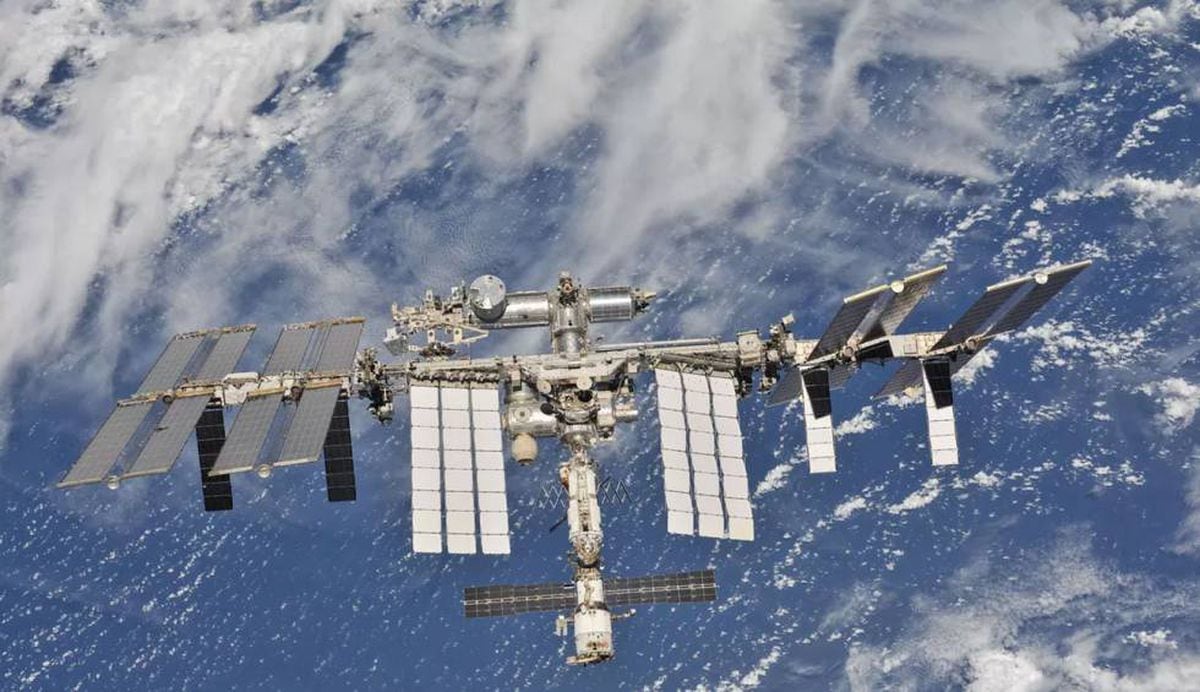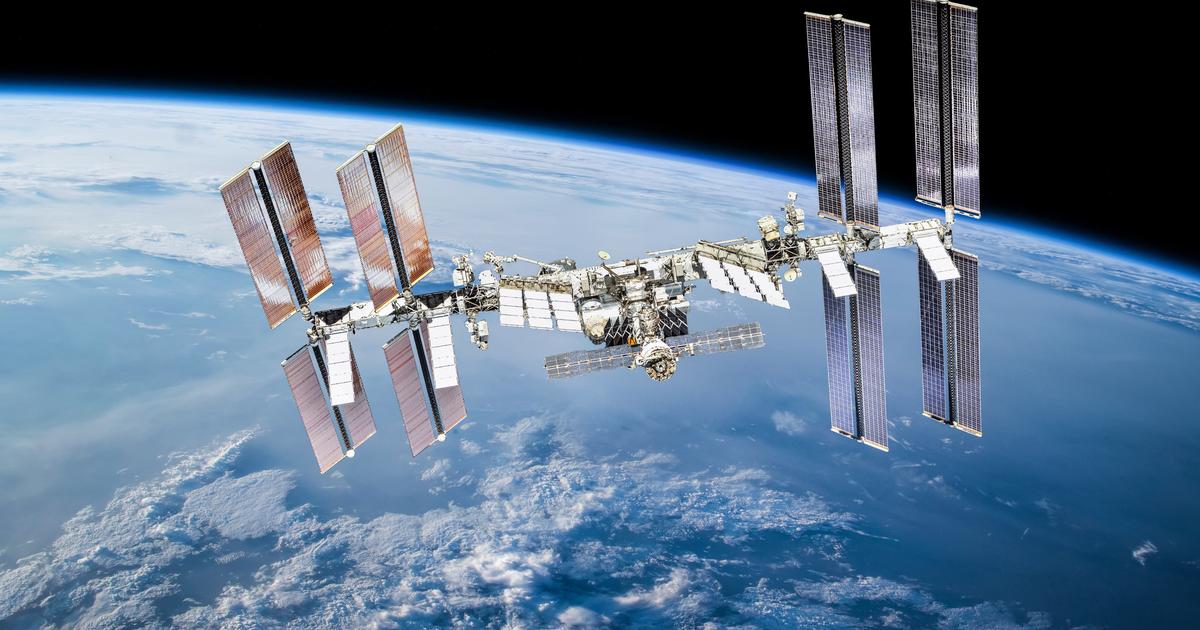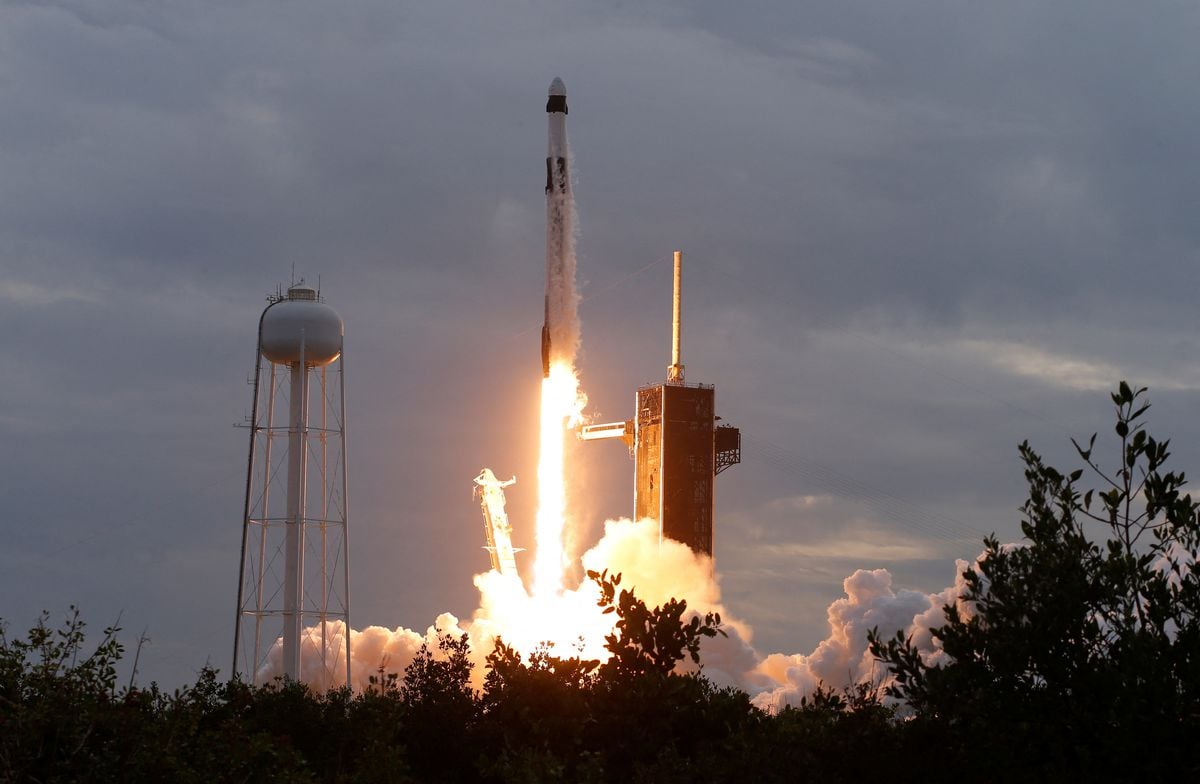The Ukraine war is also being fought in space.
Last Tuesday, Yuri Borísov, the new director of the Russian space agency (Roscosmos) announced in a press conference with Vladimir Putin the imminent departure of Russia from the International Space Station.
With this gesture, Russia would cut the last link that unites its space program to that of the rest of the powers, with which it has been collaborating since the end of the Cold War.
It is the climax of the political tensions that the invasion of Ukraine has unleashed in the space sector.
In recent months, the projects with Russian participation have been dismantled one after another: on the one hand, Europe has suspended million-dollar missions as part of the sanctions against Russia;
on the other, the Slavic country has withdrawn the rockets with which most of the European missions have been launched.
This should not be surprising, since space activity has always been intimately linked to geopolitics.
During the Cold War, the competition between the great powers led to a race for space superiority, and it was not until 1998, in the context of a new era of cooperation, that the International Space Station (ISS) materialized. ).
The creation of this laboratory,
in orbit around the Earth, has allowed great scientific advances and constitutes the longest space collaboration to date.
Precisely for this reason, the Russian threat to leave the ISS carries a strong symbolic charge.
However, it is not yet clear how the exit will be effective.
Borisov's vague words (who stated that Roscosmos would leave the project "after 2024" to focus on a future Russian base) blur the deadlines, and Russia could still delay its presence on the Station until 2030, the deadline for the rest of the projects. countries.
This would leave him room to build his own space station, for which he has two paths: reuse Russian components from the ISS or build an entirely new base.
The much faster first option would not result in a habitable station, but rather a base to land on briefly.
Furthermore, the ISS components would retain their current orbit, which barely passes over Russia.
This would make scientific work difficult and, to access your station,
Borísov, however, clarified on Friday that the end of his work on the ISS and the beginning of operations of the Russian station "must be, without a doubt, synchronized."
“We simply said that after 2024 we will start the exit process.
This will happen in mid-2024 or 2025, everything depends, including the state and operational capacity of the ISS itself," according to EFE.
The last Soviet space station, the MIR, became operational in 1986 and was in orbit until 2000, when it was dropped into the Pacific Ocean.
The option that the Russian agency claims to have chosen is to create a space station from scratch.
This was expressed by Vladimir Soloviev, Russian cosmonaut and head of flight operations of the ISS, in a recent interview published by Roscosmos.
Soloviev estimates that the new Russian station will not be operational until 2030 and, despite the fact that it involves a much higher investment and a longer delay, it will have the great advantage of being able to be placed in an orbit that flies over the country.
According to the first sketches, the project amounts to 2,700 million rubles (37 million euros) and the first module would be put into orbit in 2025, the first stone of a decade of work to complete the plan.
Regarding Russia's departure from the ISS, Soloviev believes that it will not happen until the new Russian station is built: "We must continue to operate the ISS until the Russian orbital station project is more or less advanced."
On the other hand, Europe and the US do not believe that the exit is imminent either: Josef Aschbacher, director of the European Space Agency, has said in an interview with the CNN network that “after 2024 it could mean anything, even staying until 2030, in theory”, and Robyn Gatens, a NASA official, has assured that they have not received “any official notice about it”, according to SpaceNews.
If Borisov's order to abandon the project so soon were followed to the letter, the consequences for the Russian space program could be very negative.
With the Russian economy suffering from the pressure of the war in Ukraine and international sanctions, none of the options to build a new base is realistic in the medium term.
If the ISS were to be abandoned now, the Russian manned program would be left adrift, stuck in a long and detrimental hiatus.
If the Station went ahead without the help of Roscosmos, this could delegitimize the role of the Russians, making it appear that they are not an essential part of space activity.
As US astronaut Scott Kelly explained: "Russian collaboration on the ISS gives Putin credibility both domestically and internationally."
How does this new situation affect space exploration?
Sooner or later, Russia's exit will happen, and it seems that it will catalyze two processes that are already underway.
The first is the rise of new space powers, such as China, which can get closer to the Russians or fill the gap left by them, allying with Europe and the United States.
Although the Asian giant has only been assembling its own orbital base, Tiangong, for a year, at the current speed it is expected that the module will be ready by the end of the year.
This can be a great asset for the Chinese government, which has also already expressed its intention to incorporate foreign astronauts into the mission.
The second process is the increased involvement of the private sector in space exploration.
Currently, Russia is in charge of the rockets that allow orbital maneuvers.
For the Station to continue operating without Russia, it would be necessary to find a replacement for Russian rockets, whose role is essential in keeping the Station in orbit.
Without them, he would fall back to Earth.
The situation that now seems most likely if the Station is to remain operational is for the large aerospace companies, Space X (USA) and Arianespace (France), to intervene, which have already offered to provide the Station with the necessary rockets.
This collaboration is not a recent phenomenon: NASA has been ceding some near-Earth orbit tasks to private entities for five years.
Nevertheless,
So what to do without Russia?
Undoubtedly, his departure from the ISS will mark the step towards a stage in which the Russians, cut off from the West, will have to look for different ways to continue their space activity.
It will also open up other challenges, particularly for the US and Europe, which will have to adapt to the prominence acquired by new actors, both public and private.
Without Russia, the remaining countries are headed for a new space age, in which current alliances will be restructured.
Belén Yu Irureta-Goyena
is a predoctoral researcher at the Federal Polytechnic School of Lausanne.
You can follow
MATERIA
on
,
and
, or sign up here to receive
our weekly newsletter
.









